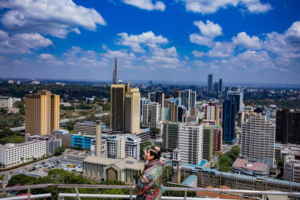Moving to a new country is an exciting opportunity for personal and professional growth, but it also comes with its fair share of challenges, particularly when it comes to navigating cross-cultural differences. International moving requires individuals and families to adapt to new customs, languages, and social norms, which can be both enriching and daunting. Here, we explore some of the cross-cultural challenges associated with international moving and provide strategies for overcoming them.
Language Barrier
Communication Challenges
One of the most significant challenges faced by expatriates is the language barrier. Communicating effectively in a new language can be difficult, leading to misunderstandings and frustration in both personal and professional settings.
Strategies for Overcoming Language Barrier
- Language Classes: Enroll in language classes or hire a tutor to improve your language skills before and after moving to a new country.
- Language Apps: Utilize language-learning apps and online resources to practice vocabulary, grammar, and pronunciation.
- Immersive Learning: Immerse yourself in the local culture by engaging with native speakers and practicing language skills in real-life situations.
Cultural Differences
Social Customs and Etiquette
Every culture has its own set of social customs and etiquette, which may differ significantly from those in your home country. Navigating these cultural differences can be challenging and may require time and effort to understand and adapt to.
Strategies for Navigating Cultural Differences
- Cultural Sensitivity Training: Seek out cultural sensitivity training or workshops to gain insights into the customs, traditions, and social norms of your host country.
- Observe and Learn: Observe the behavior of locals and take cues from their interactions to understand appropriate social etiquette and behavior.
- Ask Questions: Don’t hesitate to ask questions or seek clarification when encountering unfamiliar customs or practices.
Adjustment to New Environment
Homesickness and Isolation
Adjusting to a new environment can be emotionally challenging, particularly if you experience homesickness or feelings of isolation. Being away from familiar surroundings, friends, and family members can exacerbate feelings of loneliness and disconnection.
Strategies for Coping with Adjustment
- Build a Support Network: Reach out to other expatriates, locals, and community groups to build a support network and establish connections in your new environment.
- Stay Connected: Stay in touch with friends and family members back home through regular communication, video calls, and social media.
- Explore and Engage: Get involved in local activities, events, and cultural experiences to immerse yourself in the community and combat feelings of isolation.
Conclusion
International moving presents a unique set of challenges, particularly in navigating cross-cultural differences. By recognizing the language barriers, cultural differences, and adjustment issues associated with moving to a new country, individuals and families can better prepare themselves for the transition. With patience, openness, and a willingness to learn and adapt, expatriates can overcome these challenges and embrace the opportunities for personal and cultural enrichment that come with international relocation. Space move kenya is here to help you with international relocation.
FAQs
- How can I prepare for the language barrier when moving to a new country?
- Prepare for the language barrier by taking language classes, using language-learning apps, and immersing yourself in the local culture to practice language skills.
- What are some common cultural differences to be aware of when moving abroad?
- Cultural differences may include social customs, etiquette, communication styles, and attitudes toward time, hierarchy, and personal space.
- How can I cope with homesickness and isolation when living abroad?
- Coping strategies include building a support network, staying connected with friends and family back home, and actively engaging in local activities and community events.
- Are there resources available to help expatriates navigate cross-cultural challenges?
- Yes, there are resources such as cultural sensitivity training, expatriate support groups, and online forums that provide guidance and support for individuals moving abroad.
- What are some tips for helping children adjust to a new culture and environment?
- Tips include maintaining open communication, providing opportunities for cultural exploration and education, and supporting children in building friendships and connections in their new environment.







